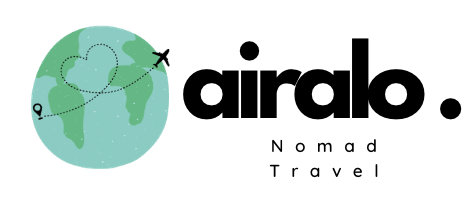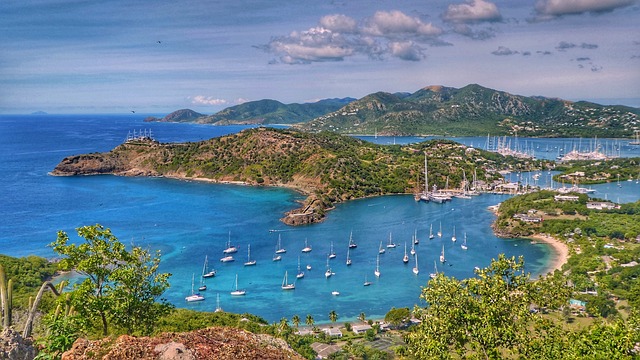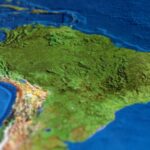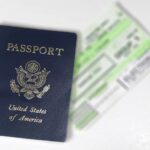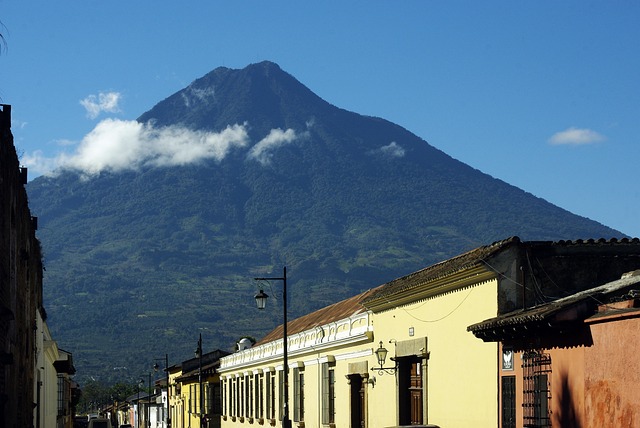
Antigua is a shining pearl in the Caribbean, attracting tourists and foreign residents from all over the world with its beautiful beaches, peaceful pace of life and rich history and culture. Understanding the cost of living is an essential step for anyone planning to settle here or travel here for an extended period. This article will take a closer look at the average monthly cost of living in Antigua to help you better plan your budget.
1. Housing expenses
Housing is the largest component of the cost of living in Antigua. Rental prices vary widely depending on where you live, type of housing, amenities and living needs. Here’s a detailed breakdown of the different housing options:
1.1 Rentals near beaches and tourist areas
Antigua’s beaches and tourist areas are a top choice for many expats and tourists. Housing in these areas is generally more expensive but offers convenient living conditions and stunning views.
- Studio apartment: A studio apartment located near the beach or in a tourist hotspot rents for approx.$700 to $1,200between. These apartments usually offer basic amenities, including kitchens, air conditioning, and bathrooms. The area is generally 30 to 50 square meters, suitable for singles or couples. If you choose an apartment in a busier urban area or near the waterfront, rent may be higher.
- High-end apartment: If you want to enjoy more modern facilities and services, the price will increase accordingly. Apartments equipped with high-end facilities such as private swimming pools, gyms, 24-hour security services, and sea-view balconies generally rent for$1,500 to $3,000between. Some luxury apartments may also offer private parking spaces, cleaning services and high-quality finishes, attracting expats seeking luxury living.
1.2 Rental housing in remote areas and rural areas
For those who want to avoid crowded areas and enjoy a quieter life, Antigua’s rural areas and places away from the beaches are a good option. Rent in these places is relatively cheap, but transportation and convenience may not be as good as in urban areas.
- Two-bedroom apartment: Located in the countryside or in areas far away from the beach, the average monthly rent for a two-bedroom apartment is approximately$1,000 to $1,500. This type of apartment is usually larger in size, suitable for family living, and has complete basic facilities, but the decoration and supporting services are usually simple and may not have the advanced equipment and accessories found in luxury apartments.
- condominium: Condominiums usually offer basic facilities and are more affordable than single-family villas. Depending on location and facilities, monthly rent is approximately$1,000 to $1,800. Most of these apartments are smaller building complexes, with tenants sharing common facilities such as swimming pools and gyms.
- country house: If you want more space and more privacy, choose a villa in a rural area. Generally speaking, the rent for this type of villa is$1,500 to $2,500The price depends on the size, facilities and location of the villa. Country houses usually have larger yards and green areas, suitable for those with families or those who want to be closer to nature.
1.3 Price differences between long-term and short-term rentals
Antigua’s rental market prices long-term and short-term rentals differently. Generally speaking, long-term rentals (more than 6 months) will have certain discounts on rent, while short-term rentals (especially during the tourist season) may be more expensive.
- Long term lease offer: If you choose a long-term lease, you can usually get a better price. For example, originally$1,200/monthof studio apartments, long-term rentals may drop to$1,000/monthor lower.
- Peak prices for short-term rentals: During peak tourist season (usually November to April), prices for short-term rentals can rise significantly. Short-term rentals at oceanfront condos and resorts can cost as much as$2,500 to $4,000Prices remain high every month, especially during the Christmas and New Year holidays.
1.4 Additional fees and administrative costs
In addition to rent, renting in Antigua may also involve some other additional costs.
- utility bills: Utility bills are not cheap in Antigua, especially during the hotter months, and the use of air conditioning may cause electricity bills to rise. Utilities (including water, electricity, and garbage disposal) are typically charged monthly at$150 to $300between. The cost depends on the size of the home and the lifestyle of the occupants.
- Property management fee: Some high-end apartments or condominiums will charge property management fees. This fee usually covers the maintenance of public facilities, security and other services. The fee is approximately$50 to $200per month.
- Internet and TV: Internet costs are higher in Antigua, generally the monthly fee is around$70 to $150, the specific price depends on the selected service provider and network speed. If TV service is required, the cost will also increase.
2. Food and Catering
Food and dining expenses are relatively high in Antigua, especially the cost of imported food and restaurant meals. While local food is cheaper than imported food, the overall cost of eating out is often more expensive. Here’s a detailed breakdown of food and dining expenses:
2.1 Daily food for families
In Antigua, daily household food purchases mainly rely on supermarkets. Most supermarkets offer both local and imported products, with varying prices.
- basic ingredients: The monthly cost of purchasing basic ingredients such as rice, noodles, eggs, vegetables and fruits is usually$300 to $500between. This price will be affected by the number of family members, personal eating habits and the types of ingredients chosen. For example, households that prefer to eat organic food or imported products may spend more.
- Yonewamen: The price of a bag of rice is approximately$5 to $15, varies according to brand and package size. Noodles usually cost between$2 to $5between.
- egg: The price of 12 eggs is approx.$3 to $5, organic eggs are more expensive.
- vegetables and fruits: The prices of vegetables and fruits in Antigua vary greatly, and locally produced seasonal vegetables and fruits are relatively cheap. For example, a handful of spinach might only require$2 to $3, while the price of imported tomatoes or oranges may reach$4 to $6per kilogram.
- imported food: Since many of Antigua’s imported foods come from far away, they are more expensive. For example, imported cheese, chocolate, frozen foods, or foreign brands of condiments are usually more expensive than local goods and you may have to pay20 to 50% premium. These imported goods are usually only found in large supermarkets or specialized import stores.
- For example,EVERY Supermarket andPriceSmartIt is a common supermarket in Antigua, offering a variety of food and imported goods.
2.2 Eating out
Eating out is an unavoidable expense in daily life in Antigua, especially for residents or visitors who don’t want to cook every day. Antigua has a diverse dining culture, with many local and international restaurants to choose from.
- local restaurants: A simple local meal (such as grilled chicken, rice, beans and vegetables) at some of Antigua’s local restaurants will cost approx.$10 to $20. Most of these restaurants offer simple yet rich traditional Antiguan dishes, suitable for consumers on a tighter budget.
- Medium to high-end restaurants: If you choose to go to a higher-end restaurant, the cost of a single meal will usually be higher, which may be$30 to $50between. Upscale restaurants offer more refined cuisine and a more sophisticated dining environment, often with wine lists and selections of international cuisine. For example, the price of a seafood restaurant or an international restaurant with special flavors may be close to or exceed$50, especially if you order some special drinks or large portions of meals.
- Recommended restaurants: Such as in AntiguaHemingway’s Caribbean CaféandThe Bay House, offering high-quality seafood and international cuisine.
- Restaurants and fast food: In addition to traditional restaurants, there are also some small restaurants and fast food restaurants that provide lower-priced convenience foods such as burgers, sandwiches and snacks. A simple fast food meal at these places usually costs around$5 to $10, suitable for those with a fast-paced lifestyle.
2.3 Coffee and snacks
Coffee culture is very popular in Antigua, especially in urban areas and resort areas, where there are many cafes serving high-quality coffee.
- coffee: At your local cafe, a regular cup of coffee or latte costs approx.$3 to $7. Some high-end coffee shops offer specialty coffee, and the price may be higher, reaching$7 to $10。
- snack: In addition to coffee, many cafes also offer desserts and snacks such as cakes, cookies, and sandwiches. The price is generally$3 to $7between. For example, a chocolate cake might require$4 to $5, a hot sandwich approx.$5。
- Common cafes:Cafe BlueandThe Coffee Shop AntiguaOffering a variety of delicious coffee and desserts.
2.4 Takeaway and delivery services
As takeout and delivery services become more popular around the world, many restaurants in Antigua are also offering takeout. Some restaurants offer home delivery through food delivery platforms such as Uber Eats or local food delivery services.
- Takeaway cost: Takeaway prices are similar to those of dining in, usually at$10 to $50The specific price depends on the quality of the restaurant and the dishes ordered. In addition, takeout services may also charge a certain delivery fee, which is approximately$2 to $5。
3. Transportation expenses
Transportation in Antigua is relatively affordable, but due to the size of the island and limited transportation infrastructure, the public transportation system is not very developed. As a result, residents and visitors to Antigua typically rely on taxis, rental cars, or a limited amount of public transportation as their primary mode of travel. The following is a detailed transportation cost analysis:
3.1 Taxi
Taxi services in Antigua are relatively simple and are mainly used for short trips. There is no fixed pricing system for taxi fares, instead prices are negotiated based on distance and destination. For some common short-distance routes, taxi fares are approx.$5 to $15。
- short trip: For example, traveling from Antigua city center to a nearby beach or resort usually costs between$5 to $10between. If the destination is further away, the price may rise to$15about.
- daily use: If you choose a taxi as your main means of transportation, especially for frequent short-distance trips, the accumulated expenses will gradually increase. For example, with two to three short-distance taxi trips per day, a month’s taxi fare might be$150 to $300. This situation is suitable for tourists and residents who do not intend to drive themselves or do not want to rely on public transportation.
3.2 Car rental
Due to Antigua’s inadequate public transportation system, many residents and tourists choose to rent a car as their main mode of transportation. The island is relatively small, so renting a car is a flexible and convenient option, especially for tourists who plan to explore the entire island.
- short term car rental: The price of renting a car is approx.$30 to $60per day, the exact price depends on the type of car, rental period and car rental company. More economical cars are usually found in$30 to $40between, while the price of a more luxurious SUV or off-road vehicle may reach$50 to $60every day.
- Long term car rental: Car rental companies often offer discounts if you plan to stay for a long time. Prices for long-term rentals (e.g. a week or more) are approximately$200 to $350Weekly, often cheaper than short-term rentals. Some car rental companies offer packages that include insurance, which may increase the rent slightly.
- Car rental company: There are many companies providing car rental services in Antigua, the more well-known ones includeCars RentandIsland Car Rentals, these companies offer various types of vehicles to suit different needs.
3.3 Public transportation
Antigua’s public transportation system is relatively rudimentary, relying mainly on a few small buses and minibuses. These public transportation options are often the choice of residents and some tourists, especially when on a budget.
- bus: The buses in Antigua are mainly small “local buses”. These buses usually do not operate according to a fixed timetable, but decide their departure time based on the number of passengers and demand. Fares are usually cheaper, approx.$1 to $3. However, bus routes have limited coverage and usually operate mainly between the island’s major cities and villages, often making it less convenient to reach remote areas.
- mini bus: In addition to regular buses, there are also some mini buses that provide pick-up and drop-off services in the city and surrounding areas. Minibus fares are about the same and usually in$1 to $3between. Due to their small size and flexible routes, minibuses are relatively easy to shuttle between cities and rural areas, and are suitable for residents or tourists who are not in a hurry to reach their destination but need low-cost transportation.
- Limitations of public transportation: Although public transportation is less expensive, most people prefer taxis or rental cars due to its infrequent frequency and limited coverage. If you live in a more remote area or plan to travel frequently, public transportation may be less accessible.
3.4 Bicycles and motorcycles
In addition to taxis and rental cars, some visitors and residents of Antigua also choose to rent bicycles or motorcycles. Antigua’s roads are relatively bike-friendly, especially in the city and near the beaches, and using a bicycle or motorcycle can avoid traffic jams.
- Bicycle rental: The price for bicycle rental is usually$15 to $30Daily, depending on bike type and rental company. For short trips or easy everyday travel, bicycles are a convenient and environmentally friendly mode of transportation.
- Motorcycle rental: The rental price of motorcycles is generally between$20 to $40On a daily basis, more economical models are available at lower prices, while larger motorcycles or specific models may cost more to rent.
4. Utility and Internet Charges
Utility and internet costs are relatively high in Antigua, largely due to the island’s location and limited infrastructure. Residents and long-term visitors need to consider how much of these costs fit into their monthly budget. Here are detailed information about utility and internet costs in Antigua:
4.1 Utility and electricity costs
Utility costs in Antigua depend primarily on usage, size and type of residence. Most of the island’s energy supply relies on imports, so the cost of electricity and water is relatively high.
- Electricity cost: Electricity in Antigua is generally expensive, especially the use of high-energy-consuming appliances such as air conditioners and electric water heaters, which can significantly increase electricity bills. Generally speaking, the monthly electricity bill for a single person living is approximately$50 to $100, while for a family or multi-occupancy apartment, the electricity bill may be$100 to $200between. For air-conditioned homes and large residences, electricity bills may be close to$300。
- water bill: Water bills are relatively cheap in Antigua, especially for residents who use small amounts of water. The basic water bill is usually$20 to $50between. Water bills may increase if the household uses a large amount of water or includes additional water use such as garden irrigation and swimming pool cleaning$60 to $100per month.
- garbage collection: In Antigua, rubbish collection is usually charged on a quarterly basis and costs approximately$20 to $50, so each month is roughly equivalent to$7 to $15. Fees vary depending on the frequency of garbage collection services and the location.
Overall, utility bills in Antigua typically run between$150 to $300This represents a significant portion of the cost of living for a typical family.
4.2 Internet charges
The Internet is an indispensable service in modern life, especially for digital nomads and people who have lived in Antigua for a long time, a stable Internet connection is very important. However, Internet costs in Antigua are relatively high compared to other countries, mainly due to its reliance on network infrastructure and the geographical constraints of the island.
- Basic internet charges: Internet service costs in Antigua depend on the different service providers and the network package chosen. Basic home broadband plans typically offer download speeds of10 to 20 Mbps, the monthly fee is approximately$70 to $100. For users who require higher speeds, faster plans may be available for a monthly fee of approximately$100 to $150。
- High-end Internet packages: If you need a higher speed (such as 50 Mbps or higher), the price will be more expensive, usually$150or higher, especially those with higher-end providers that offer more reliable and faster connections. For most users who need stable office work, video conferencing or high-definition streaming, it is recommended to choose a higher-speed package.
- mobile data: If you choose mobile internet, the cost of data plans is lower, usually around$30 to $50, which varies depending on the amount of data traffic selected. Most mobile network operators (such as Digicel and Flow) offer a variety of options to suit users with different data needs.
- service provider: In Antigua, the main Internet service providers include Digicel and Flow, both of which offer different speeds and package options, so users can choose the right service according to their needs.
5. Entertainment and leisure expenses
Antigua is known for its beautiful beaches, tropical climate, and abundance of outdoor activities. Whether it’s sun and sand, hiking, diving, or water sports, Antigua offers a variety of entertainment options. Many activities are free for nature lovers, but there are also some more unique and specialized activities that may cost extra. Below is detailed cost information for common entertainment and leisure activities in Antigua:
5.1 Gym membership
Although Antigua has a wide variety of outdoor activities, many people still choose to go to the gym to stay fit. Gyms in Antigua typically offer a comprehensive range of fitness equipment, group classes and personal training services.
- Basic gym monthly fee: In Antigua, a monthly gym membership costs approximately$30 to $50, this type of gym usually provides standard equipment such as treadmills, strength training equipment, and basic aerobic classes.
- High-end gym monthly fee: If you choose a higher-end gym, the cost may be between$50 to $70between. These gyms usually provide more advanced facilities, such as swimming pools, saunas, yoga and Pilates classes, etc., suitable for fitness enthusiasts who require a higher quality exercise experience.
5.2 Diving and water sports
Antigua is surrounded by sea and has rich marine resources and beautiful coral reefs, so water sports and diving are popular choices for tourists. Whether you are a beginner or an experienced diver, Antigua offers many diving courses and water activities.
- Diving course fees: For newbies, there are many diving schools in Antigua that offer diving experience courses, which cost approx.$100 to $150, including basic diving equipment and entry-level diving guidance. After completing the diving course, if you want to continue diving or take a certification course, the price will increase, usually at$200 to $400between.
- Snorkeling and other water sports: If you are just snorkeling, there are usually rental services on the beaches and coastal areas of Antigua, and the price is generally between$20 to $50Includes snorkeling equipment rental and guided tour services. In addition to this, Antigua also offers other water sports such as windsurfing, windsurfing, kayaking and jet skiing, and the price of each activity is usually between$50 to $150depending on the length of the event and the equipment rented.
5.3 Social activities and entertainment
In addition to outdoor activities, Antigua’s social activities and nightlife are also important factors that attract tourists. The island’s bars, restaurants and clubs are often a great place to relax and socialize, especially on weekends and holidays.
- Restaurants and bars: A dinner or drink at Antigua’s restaurants and bars for approx.$10 to $30. A typical dinner is approx.$15 to $25between, and if you choose to dine at a high-end restaurant or a beachside restaurant, a single meal may be as high as$40 to $60。
- Nightlife and Entertainment: Antigua’s nightlife is also vibrant, with the island’s bars, clubs and entertainment venues often hosting live music or DJ parties. The cost to attend these events is approx.$10 to $30, sometimes including drinks or tickets. Costs may be higher at high-end clubs or private parties, especially during holidays and peak tourist seasons.
- Culture and festivals: Antigua has a wealth of cultural activities and festivals, such as the annual Caribbean Festival, Independence Day celebrations, etc. Some of these events are free, such as street performances and parades, while some require paid admission, which costs approx.$20 to $50, depending on the size and type of event.
5.4 Other leisure activities
- golf: Antigua has some beautiful golf courses for golf enthusiasts. A golf course fee is usually$50 to $150depending on the type of course and time of day.
- SPA and massage: If you prefer to relax, Antigua’s resorts and hotels offer a variety of massage and spa services. A basic massage usually costs$50 to $100between, while a luxurious body treatment or spa experience may be more expensive, up to$150 to $300。
6. Medical insurance and health management
The level of medical facilities in Antigua is relatively basic, so many expats, long-term residents and digital nomads choose to purchase international health insurance to ensure they have access to high-quality medical services when needed. Although there are some public and private clinics in Antigua, complex illnesses and treatments often require transfer to other areas, such as the Caribbean or the United States. Medical costs are also relatively high, especially when professional treatment and emergency care are required.
6.1 Medical insurance fees
The cost of health insurance in Antigua is typically affected by a variety of factors, including the insurance company, the type of insurance plan chosen, and the individual’s health. For most people, choosing international health insurance is the most common choice, as this type of insurance provides broad coverage and often provides access to medical services around the world. Below is detailed cost information for international health insurance:
- basic health insurance: Basic international health insurance usually covers hospitalization, emergency services and some routine medical tests. For an adult in good health, basic insurance costs approximately$100 to $150per month. This type of insurance plan is suitable for those whose primary concern is emergency and basic medical coverage.
- Medium protection plan: Insurance plans with medium coverage not only cover hospitalization and emergency services, but also cover some routine health examinations, chronic disease management, and medication. For those who need more comprehensive protection, the monthly fee is generally between$150 to $250between. This type of plan is typically for middle-aged residents or people with a history of chronic diseases who want coverage for common illnesses and basic preventive treatments.
- premium health insurance: Premium international health insurance plans provide more comprehensive protection, including high-end private clinic treatment, professional treatments, dental and vision services, mental health support and certain medical evacuation services. This type of insurance is usually suitable for high-income individuals who travel frequently or expats with high medical needs. The monthly fee is usually$250 to $300The specific cost depends on factors such as insurance coverage, location, and age.
6.2 Medical service fees
Although Antigua’s public hospitals and private clinics provide basic medical services, when specialized treatments or high-end medical services are required, the cost can be relatively high:
- General outpatient and primary care: A general consultation or basic health check-up at a public clinic in Antigua costs approximately$30 to $50. Private clinic fees may be higher, especially if specialist doctors or special tests are required, which may range from$50 to $100between.
- hospitalization expenses: Hospitalization in Antigua is also more expensive, especially if a long stay or complex treatment is required. The cost of a night in hospital is usually$100 to $300The exact cost depends on the type of room (e.g. single room or multi-person room) and the complexity of the treatment.
- Emergency medical and emergency services: If urgent treatment is required, especially for a serious accident or acute illness, the cost of emergency services will be relatively high and may be$200 to $500The exact cost depends on the urgency of the treatment and the equipment required.
6.3 Health management and prevention
In Antigua, the cost of health management and preventive care is relatively low, but some residents choose to have regular health checkups to prevent potential health problems. Common health examination items include:
- Annual physical exam: Includes basic blood tests, weight and blood pressure monitoring, and screening for common diseases. The cost of an annual physical exam is approximately$100 to $200The exact cost depends on the clinic and examination chosen.
- Vaccination: For foreign residents or long-term residents, vaccination may be required, especially when traveling to certain countries. Common vaccination costs generally range from$20 to $50between.
- mental health management: With more and more people concerned about mental health, several mental health professionals in Antigua offer counseling and therapy services. The cost of a single psychological consultation is approximately$50 to $100The cost depends on the length of treatment and the experience of the therapist.
6.4 Referrals and emergency medical evacuation
For some serious illnesses or treatments, Antigua’s medical facilities may not provide adequate professional treatment. In this case, residents may need to travel to other countries, such as the United States, United Kingdom, or other islands in the Caribbean, for treatment.
- medical transport: Medical evacuation services are more expensive and often require coverage through high-end health insurance. An emergency medical evacuation costs approximately$1,000 to $5,000, the exact cost depends on the distance of transfer and the complexity of the emergency services.
in conclusion
The average monthly cost of living in Antigua varies depending on personal needs, location and lifestyle. Overall, housing is the largest expense item, especially high-end apartments located near beaches or in tourist areas, where monthly rent can be as high as $1,500 to $3,000, while rent in rural or remote areas is relatively cheaper, typically $1,000 to $2,500. between. Daily food and dining expenses cannot be ignored. Local food is moderately priced, but imported food and eating out are more expensive. Monthly food expenses generally range from $300 to $500, and eating out can lead to higher monthly expenses, especially at mid- to high-end restaurants.
In terms of transportation, taxis and car rentals are common in Antigua, but due to the limited public transportation system, many residents and tourists choose taxis or rental cars as their main mode of travel. Taxi fares usually range from $5 to $15, while car rentals range from $30 to $60 per day, depending on the rental period and model.
Overall, the cost of living in Antigua is relatively high, especially when it comes to housing, food, and transportation. For those who plan to stay for a long time or visit regularly, planning ahead and choosing the right accommodation and transportation options will help control expenses and ensure a comfortable life on this beautiful island.
